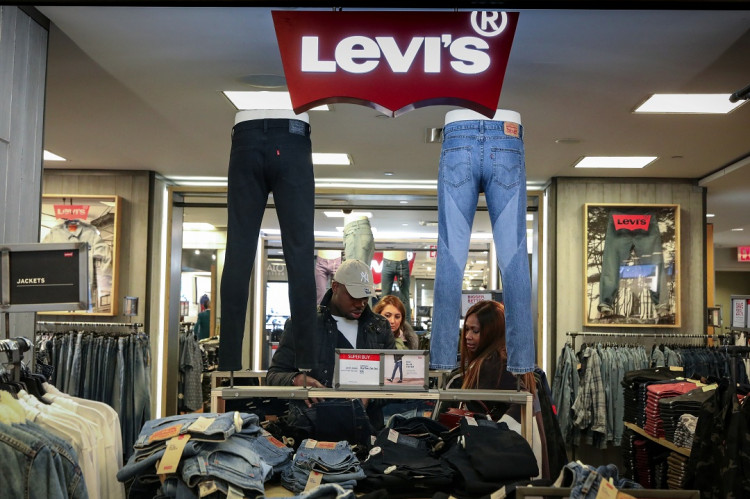Levi Strauss & Co., the iconic denim apparel retailer, has announced a significant reduction of its global corporate workforce, planning to lay off between 10% to 15% of its staff. This move comes as part of a broader restructuring effort, signaling a strategic shift in the company's operations amidst challenging market conditions.
As reported in the fourth-quarter earnings, Levi Strauss anticipates weaker sales for the upcoming fiscal year. The company's decision to reduce its workforce, affecting potentially up to 15% of its corporate employees, reflects the pressing need to streamline operations and reduce costs. As of November, Levi Strauss employed over 19,000 staff, though the precise number in corporate roles remains unclear.
This development is part of a larger trend within the retail industry, with several major retailers, including Macy's and Wayfair, also announcing job cuts. These layoffs are seen as a response to a confluence of factors, including the need to rejuvenate sales, improve profitability, and adapt to a retail landscape increasingly shifting towards digital platforms.
Levi Strauss's fourth-quarter financial performance, while exceeding some Wall Street expectations, also highlighted the challenges ahead. The company reported adjusted earnings per share of 44 cents, marginally above the 43 cents anticipated by analysts, and a revenue of $1.64 billion against the expected $1.66 billion. However, the company's forecast for the full fiscal year suggests a modest revenue increase of only 1% to 3%, significantly lower than the 4.7% growth analysts had predicted. The forecasted earnings per share for the year also fall short of expectations, estimated at $1.15 to $1.25 compared to the analyst projection of $1.33.
The job cuts are expected to generate substantial cost savings for Levi Strauss. The company anticipates saving around $100 million in costs in fiscal 2024 as a result of this "global productivity initiative." This initiative comes at a pivotal moment for Levi Strauss, as incoming CEO Michelle Gass is set to take the helm on January 29, succeeding outgoing Chief Executive Chip Bergh. Gass's leadership will be crucial in steering the company through this transitional period.
Levi Strauss is also focusing on expanding its direct-to-consumer sales, seeking to mitigate the impact of cautious stocking by chain retailers. The company's direct-to-consumer sales, which include its physical stores and online sales network, jumped 11% in the fourth quarter, accounting for 42% of overall revenue, up from the same quarter in 2022. However, wholesale revenues experienced a 2% decline.
The broader context of this restructuring includes industry-wide cost-cutting measures, as seen with Nike Inc.'s announcement last December of seeking up to $2 billion in cost reductions over three years. Levi Strauss's strategy to leverage its brand name and innovate to overcome market challenges reflects the current retail landscape, where consumer spending has been dampened by higher prices for necessities.
As Levi Strauss navigates this challenging period, the company's ability to adapt, innovate, and effectively manage its resources will be critical in maintaining its position in the competitive retail market. The coming months will be telling as to how these strategic decisions impact Levi Strauss's market performance and its ability to meet the evolving demands of the global retail environment.





